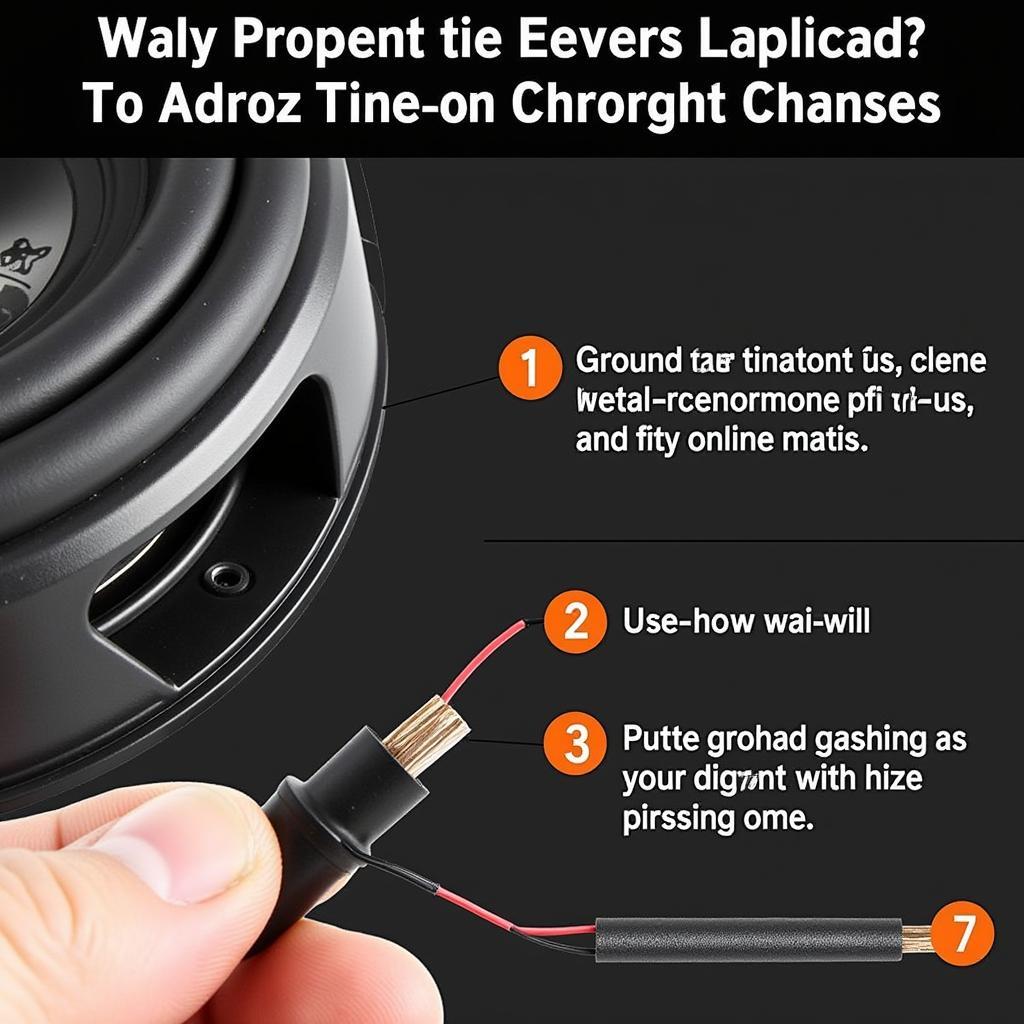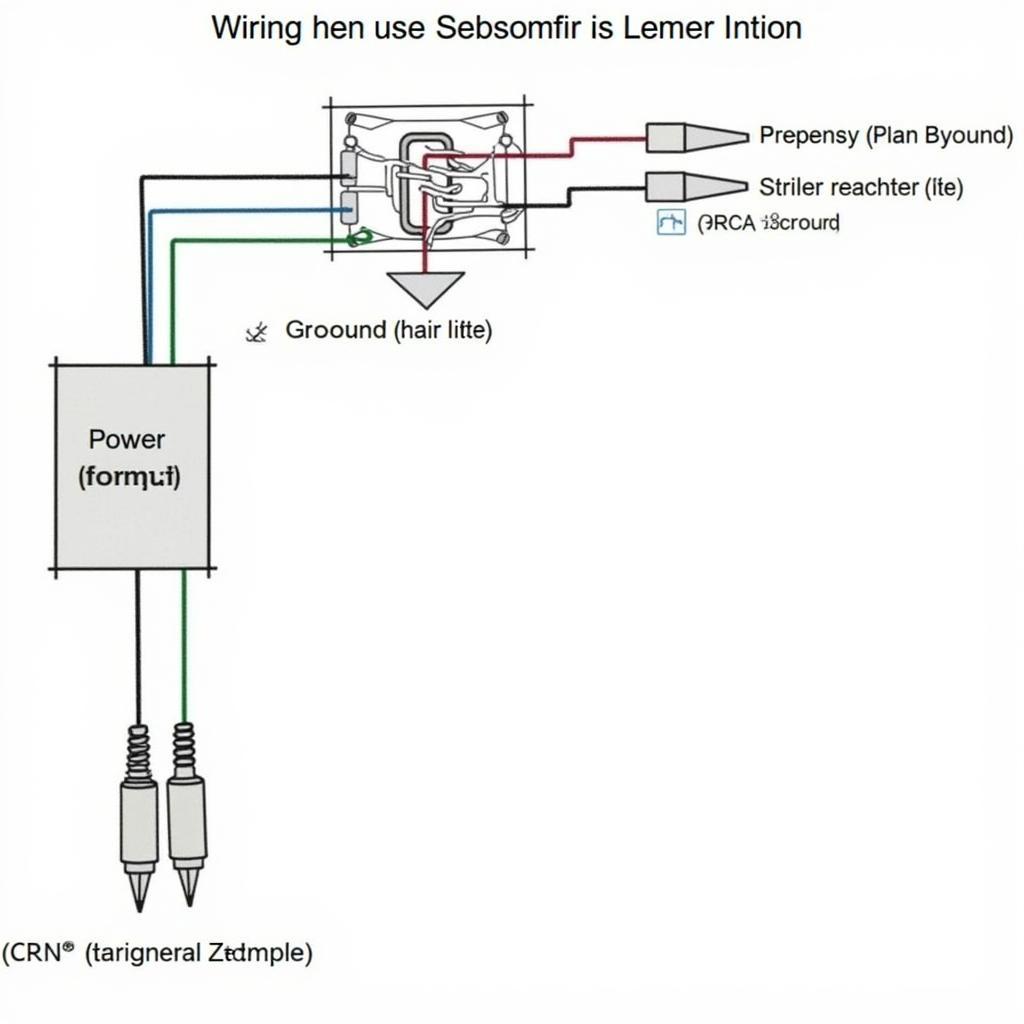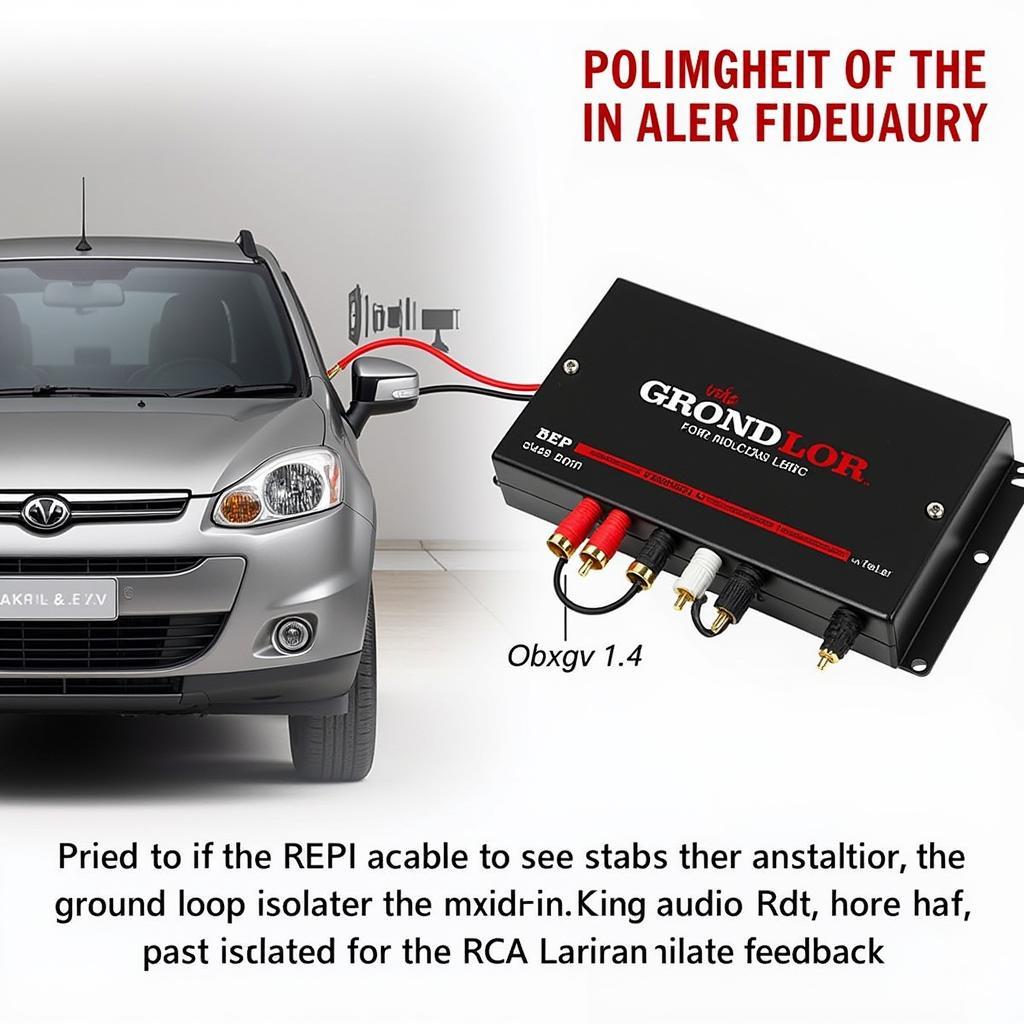Car subwoofer feedback is a frustrating issue that can ruin your listening experience. Whether it’s a low hum, a high-pitched whine, or a full-blown squeal, unwanted noise from your subwoofer indicates a problem that needs addressing. This article will guide you through the common causes of car subwoofer feedback, troubleshooting steps, and effective solutions to get your system booming clean again.
Understanding Car Subwoofer Feedback
Feedback occurs when the output of your audio system loops back into its input, creating an unwanted oscillation. In car audio, this typically manifests as a hum, whine, or squeal coming from the subwoofer. Several factors contribute to this, including improper grounding, faulty wiring, and interference from other electrical components. Identifying the root cause is crucial to fixing the problem.
Common Causes of Car Subwoofer Feedback
Grounding Issues
The most frequent culprit of car subwoofer feedback is inadequate grounding. A poor ground connection can create a ground loop, allowing electrical current to flow through unintended paths, introducing noise into the audio signal.
Wiring Problems
Damaged or poorly routed wiring can also contribute to feedback. Wires running too close to power cables or other interference sources can pick up unwanted signals, resulting in noise in the subwoofer output.
Gain Settings
Incorrect gain settings on your amplifier can also cause feedback. If the gain is set too high, it can amplify the noise floor, making even minor interference audible.
Faulty RCA Cables
Damaged or low-quality RCA cables can also introduce noise into the system, leading to feedback. Checking the integrity of your RCA cables is a crucial step in troubleshooting the issue.
 Car Subwoofer Grounding Connections Diagram
Car Subwoofer Grounding Connections Diagram
Troubleshooting Car Subwoofer Feedback
Check the Ground Connection
Start by inspecting the ground connection of your amplifier and subwoofer. Ensure it is securely connected to a clean, bare metal surface on the car’s chassis. A loose or corroded ground connection can cause significant feedback issues.
Inspect the Wiring
Carefully examine all wiring connected to your subwoofer and amplifier. Look for any signs of damage, such as fraying or cuts. Ensure the wires are properly routed, away from potential interference sources like power cables and ignition wires.
Adjust the Gain
Lower the gain on your amplifier to see if it reduces the feedback. If lowering the gain helps, it suggests the amplifier is overdriving the subwoofer or picking up excessive noise.
Test with Different RCA Cables
Try swapping out your RCA cables with a known good set to rule out faulty cables as the source of the problem. If using different cables resolves the issue, then your original RCA cables need replacing.
 Car Subwoofer Wiring Diagram for Troubleshooting
Car Subwoofer Wiring Diagram for Troubleshooting
Solutions for Car Subwoofer Feedback
Improve the Ground Connection
If you suspect a grounding issue, clean the grounding point on the car’s chassis and ensure the ground wire is securely attached. Use a suitable gauge wire for the ground connection to minimize resistance.
Reroute or Replace Wiring
If the wiring is damaged or poorly routed, reroute it away from interference sources or replace it entirely with high-quality wiring.
Adjust Gain and Crossover Settings
Fine-tune the gain and crossover settings on your amplifier to optimize the subwoofer’s performance and minimize noise.
Use a Ground Loop Isolator
If other solutions fail, consider using a ground loop isolator. This device can help break the ground loop and eliminate feedback caused by grounding issues.
 Car Audio Ground Loop Isolator Installation
Car Audio Ground Loop Isolator Installation
Expert Insights
Johnathan Miller, a seasoned car audio technician with over 20 years of experience, advises, “A solid ground connection is paramount for a clean-sounding car audio system. Don’t underestimate the importance of a proper ground.”
Sarah Chen, an electrical engineer specializing in automotive systems, emphasizes, “High-quality wiring can make a world of difference in minimizing noise and interference in car audio systems.”
David Rodriguez, a car audio enthusiast and competitor, adds, “Proper gain adjustment is key. Too much gain can lead to feedback and distortion, while too little gain leaves your subwoofer underpowered.”
Conclusion
Car Subwoofer Feedback Problems, while frustrating, are often solvable. By understanding the common causes, employing the troubleshooting steps outlined above, and implementing the appropriate solutions, you can eliminate unwanted noise and enjoy clean, powerful bass from your car subwoofer. If you’re still struggling, feel free to connect with us at AutoTipPro. You can call us at +1 (641) 206-8880 or visit our office located at 500 N St Mary’s St, San Antonio, TX 78205, United States. We’re here to help you get your car audio system back on track.




Leave a Reply